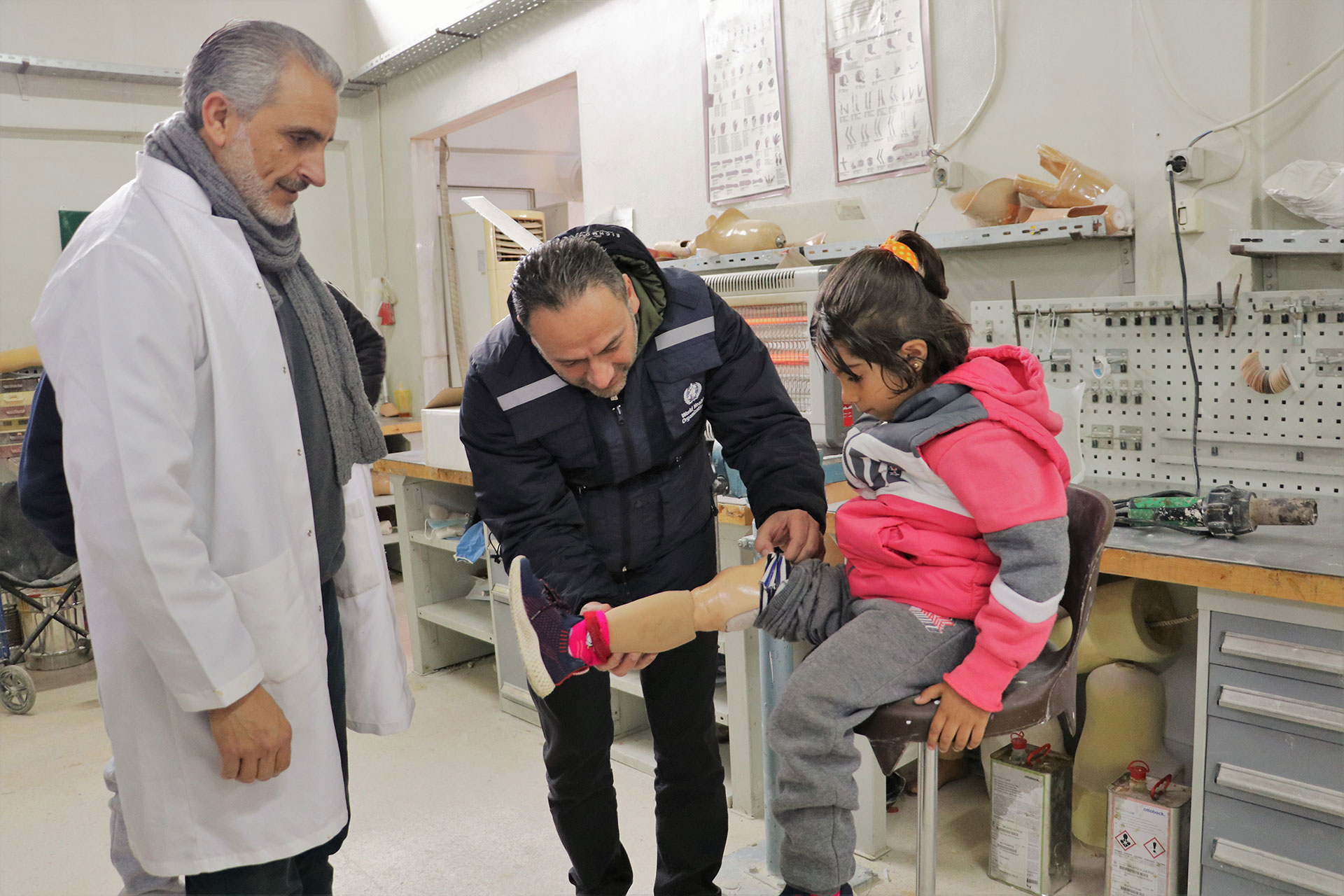23 November 2025, Oslo, Norway – At the Ninth Humanitarian Senior Officials Meeting (SOM) on Syria, WHO highlighted how essential health services can help guide the country’s transition from crisis response to early recovery. Co-hosted by the European Union and Norway, the meeting brought together senior officials from the Syrian authorities, donor governments, UN agencies and humanitarian partners.
 WHO’s Public Health Officer Dr Wail Ismail visits a rehabilitation centre where a prosthetics technician supports a young girl during a follow-up check of her artificial limb. Photo credit: WHO
WHO’s Public Health Officer Dr Wail Ismail visits a rehabilitation centre where a prosthetics technician supports a young girl during a follow-up check of her artificial limb. Photo credit: WHO
Christina Bethke, WHO Acting Representative to Syria, addressed the session on Syria’s transition toward early recovery. She drew on the Ministry of Health’s two-year strategic roadmap to show how targeted investments can stabilize services and strengthen national systems. The plan focuses on restoring priority facilities, reinforcing the workforce, and improving health financing and information systems.
Primary health centres, referral hospitals and outreach services remain the backbone of care across the country. Reflecting this, Bethke noted that “the facilities keeping people alive today are the same ones that will anchor dignified returns and local recovery tomorrow. If they close now, there is no credible pathway from emergency response to recovery.”
The meeting also underscored the urgent need to support Syria’s health workforce, which has been severely strained by years of conflict and economic hardship. “Infrastructure matters, but without people there is no health system,” Bethke said. “Treating health workers as a long-term national asset is one of the fastest and most practical bridges from relief to recovery.”
WHO and partners are backing labour market assessments, gap-filling in priority facilities, incentives for staff in under-served areas, and new opportunities for training, supervision and twinning with regional entities, while also working to strengthen Syria’s institutional capacity.
Ms. Bethke also highlighted how local health facilities can help communities take their first steps toward recovery. “In many places, the local health centre is one of the first public institutions that people see functioning after conflict,” she said. “When a clinic is safely rehabilitated, has clean water and reliable power, and offers mental health support, antenatal care, safe childbirth and newborn services, it signals that essential services are returning. These improvements help restore trust and support families as they begin rebuilding their lives.”
Across the meeting, partners agreed on the need to protect humanitarian health funding while allowing greater flexibility for early recovery. “Flexible, predictable financing aligned with the Ministry of Health’s two-year plan will allow Syrians to see one coherent offer, rather than competing agendas,” Bethke added.
WHO reaffirmed its commitment to supporting national leadership and strengthening coordination across humanitarian, development, and financial partners. With sustained collaboration, health can help safeguard lives today while laying foundations for stability, dignity, and recovery.








